Compassion Circle – A Lasting Legacy
Christian Living Communities created the Compassion Circle to honor and thank those who remember CLC with a gift in their estate plans. There are many ways to do this. Some have named CLC in their will or living trust, while others have named us as a beneficiary of a life insurance policy, IRA or charitable trust. A variety of options exist.
Many people like to preserve full control over their assets during life, protecting against future uncertainties. Others may choose to maximize any tax and financial benefits that can result from their philanthropy. It’s all a matter of choice. In addition, almost everyone will prioritize family and loved ones first, only providing for CLC after those needs are met. There is tremendous flexibility in this planning.

Ways to Give – A Variety of Options
Estate gifts can help build and strengthen a permanent endowment for Christian Living Communities, or they can be utilized for more immediate needs as they arise. It’s your decision.
Legacy of Support
You can specify your wishes as part of your gift or in conversation with a member of our Donor Relations team. Such gifts can be designated to meet current needs or to support an endowed fund for the specified purpose.
- Community Specific – funds made available to support programs and projects that benefit residents at the community of your choice
- General Endowment – funds permanently invested as a self-sustaining source of recurring income for CLC
- Resident Assistance Fund – funds provide financial assistance for qualifying residents in need
- Employee Scholarship Fund – funds provide tuition assistance for associates
- General Mission – funds utilized by CLC in the areas of greatest need
Joining the Compassion Circle
Any estate gift entitles you to become a member of the Compassion Circle.
Charitable Bequest – By naming Christian Living Communities in your Will or Living Trust, you create a gift today that we will receive when your estate is settled.
Retirement Plan – You can name Christian Living Communities as a beneficiary of your IRA or company retirement plan. To include CLC, simply request a “beneficiary change” form from your IRA custodian or Human Resources department, complete the form, and then return it according to the instructions provided. Beneficiary change forms are often available online.
Life Insurance – You can name Christian Living Communities as the beneficiary of a new or existing life insurance policy. To include CLC, simply request a “beneficiary change” form from your life insurance company, complete the form, and return it according to the instructions provided. Again, most companies make beneficiary change forms available online.
Charitable Gift Annuity – A gift annuity is a simple contract in which Christian Living Communities agrees to pay you (and/or another person) an income for life, in exchange for a gift you make today.
Charitable Remainder Trust – In the right situations, a charitable remainder trust can provide powerful financial, tax, and estate planning benefits. You donate assets into trust for the eventual benefit of Christian Living Communities. In the interim, the trust pays income to you and/or your designated income beneficiaries.
Charitable Lead Trust – A charitable lead trust can provide support for Christian Living Communities, while transferring assets in the future to your heirs with little or no gift or estate tax.
Retained Life Estate – You can donate a home to Christian Living Communities and still retain the right to live there for the rest of your life.
For more information about any of these options, please contact Director of Donor Relations, Olivia Mayer at OMayer@clcmail.org or 720-974-3675. All inquiries are held in confidence. There is never an obligation to complete any gift.
Maximum Flexibility
Revocable Gifts
The future is uncertain. However, you can still create a planned gift today while simultaneously retaining control over these assets for the balance of your life. Such gifts are called revocable gifts. You can change your mind. You have total control.
Unless you are confident that you will not outlive your assets, a revocable estate gift is almost always the best option. These gifts are generally one of the following:
- Bequest in a Will or Living Trust
- Beneficiary Designation in IRA or Retirement Plan
- Beneficiary Designation in Life Insurance Policy
- Pay-on-Death arrangement for a bank account
- Entrance Fee Refund
By naming Christian Living Communities in your will, living trust or as a beneficiary, you can protect yourself against an uncertain future. Should you ever need these assets, they are available. If not, your gift will come to Christian Living Communities exactly as you desire.
Maximum Tax Benefits
Revocable vs. Irrevocable Gifts
The IRS provides important tax incentives to encourage support for charitable organizations. To qualify for any given tax benefit, a gift typically must be irrevocable. Stated another way, a gift must be complete and not one a donor could ‘reclaim’ in any way.
Clearly, an irrevocable gift only should be made after proper reflection and consultation with your legal and financial advisors. However, with proper planning, such gifts can provide important income and tax benefits for you and your heirs.
Examples of these gifts include Charitable Remainder Trusts, Charitable Lead Trusts and Charitable Gift Annuities.
Christian Living Communities can help you explore the benefits that may result from an irrevocable planned gift. For more information, please contact Olivia Mayer at OMayer@clcmail.org or 720-974-3675. Again, there are never any expectations or obligations to complete any gift.
